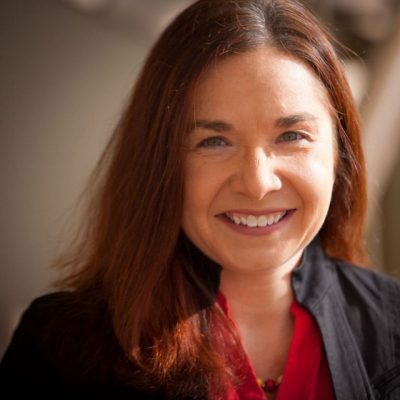Discovery Lecture
The Faculty of Science hosts public lectures during the academic year that address a scientific issue of the day as well as bring to campus well-known scientists from around the world. Established in 2002, the Discovery Lecture is designed to showcase and promote excellence in science journalism.
Sponsored jointly by the Faculty of Science and the School of Journalism, the lecture is held annually in the winter semester and is free and open to the public.
2025 Discovery Lecture
A Climate Scientist’s Case for Hope in a Divided World
Katharine Hayhoe
Tuesday, Mar. 25, 2025 | Lecture begins at 7 p.m. ET followed by Q&A
Lecture to be delivered over Zoom
Find us on social media and join the conversation using #CarletonScience
Meet our 2025 Guest Lecturer, Katharine Hayhoe

Katharine Hayhoe is an atmospheric scientist whose research focuses on understanding the impacts of climate change on people and the planet.
Katharine’s areas of expertise include science communication, greenhouse gas emissions, and developing and applying high-resolution climate projections for assessing regional to local-scale impacts of climate change on human systems and the natural environment. She holds a B.Sc. in Physics from the University of Toronto and an M.S. and Ph.D. in Atmospheric Science from the University of Illinois and has received numerous awards and recognitions for her work, including four honorary doctorates and being named a United Nations Champion of the Earth.
Previous lectures, 2002-present
Misinformation and Ideology: Does the ‘Truth’ Matter Anymore? (2024)
Timothy Caulfield, Canada Research Chair in Health Law and Policy, a Professor in the Faculty of Law and the School of Public Health, and Research Director of the Health Law Institute, University of Alberta
Unprecedented: Reporting on a New Era of Pandemics (2023)
Apoorva Mandavilli, Science & Global Health Reporter, The New York Times
Dangerous Genes: From CRISPR Babies to the COVID-19 Lab Leak Theory (2022)
Antonio Regalado, Biomedicine Editor, MIT Technology Review
Spiders to Wrangle & Mountains to Climb (2021)
Dr. Maydianne CB Andrade
Analyzing Picasso: Close Encounters in Art and Science (2020)
Francesca Casadio
The Past, Present and Future of Medicine (2019)
Natasha Loder
What Dinosaur Teeth Reveal About How they Lived (2018)
Robert Reisz
A Quirky Past, An Uncertain Future (2017)
André Picard
The New Communication Climate (2016)
Andrew Revkin
How to Build a Robot Brain: From Artificial Intelligence to Emotional Intelligence (2015)
Dr. Angelica Lin
Truth, An Inconvenience (2012)
Jay Ingram
Darwinian Evolution: From Conception to Misconception (2009)
Dr. Andrew M. Simons
Evolution and Its Causes (2009)
Dr. Charles Goodnight
The Darwin Beat: Dispatches From the Frontiers of Evolution (2008)
Carl Zimmer
Can Animals Think? (2007)
Jay Ingram
Host, Discovery Channel, Daily Planet
And Now For the Weather (2006)
David Phillips
Senior Climatologist, Environment Canada
Cold As Ice: Canadian Know A Lot About Cold …. Or Do We? (2005)
Dr. Gordon Geisbrecht
Professor of Thermophysiology, University of Manitoba
Future Fantasy: Turning Dreams Into Reality (2004)
Bob MacDonald
Host, CBC Quirks and Quarks
Science, Non-Science and Nonsense from Aliens to Creationism (2003)
Dr. Lawrence Krauss
Ambrose Swassey Professor of Physics, Case Western University
Hey! There Are Cockroaches In My Chocolate Ice Cream (2002)
Dr. Joe Schwarcz
McGill Office for Chemistry and Society